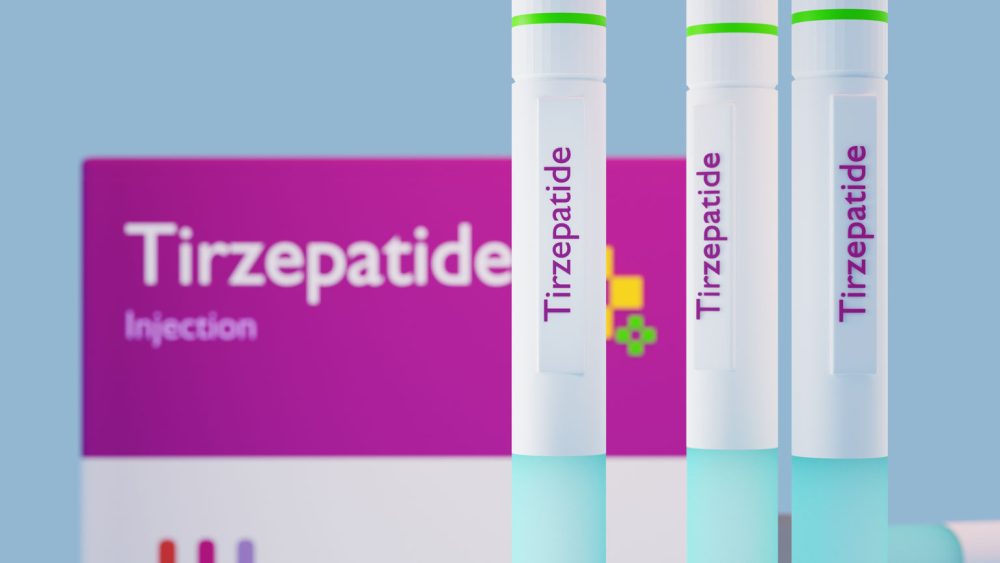Advertisment
Tirzepatide trial shows additional 21.1% weight loss following intensive lifestyle intervention

A phase 3 clinical trial evaluating the injectable prescription medication tirzepatide, showed an additional 21.1% weight loss after intensive lifestyle intervention in adults with obesity or who were overweight with weight-related comorbidities, excluding Type 2 diabetes.
The findings of the SURMOUNT-3 study, sponsored by pharmaceutical company Eli Lilly, were simultaneously published this week in the journal Nature Medicine and presented at a national conference of obesity researchers.
Tirzepatide, marketed as a treatment of Type 2 diabetes under the brand name Mounjaro, mimics the actions of two hormones, glucagon-like peptide-1 (GLP-1) and glucose-dependent insulinotropic polypeptide (GIP). These hormones work together to stimulate insulin secretion and slow stomach emptying extending the sensation of fullness following a meal. This helps regulate blood sugar levels and cause weight loss.
Gitanjali Srivastava, MD, associate professor of Medicine in the Division of Diabetes, Endocrinology and Metabolism and medical director of Obesity Medicine at Vanderbilt University Medical Center, served as a site investigator for the 72-week randomized, double-blinded, placebo-controlled trial evaluating the efficacy of tirzepatide.
“We are excited about the results of the SURMOUNT-3 trial,” said Srivastava. “This medication has already proven to be highly effective as a treatment for persons with Type 2 diabetes. This research provides solid evidence that it is also extremely effective as a tool to achieve significant, life-changing weight loss, in conjunction with a low-calorie diet, exercise and frequent nutrition and behavioral counseling.”
The trial enrolled 806 participants across the United States, including Puerto Rico, and Argentina and Brazil. Before taking tirzepatide or a placebo, participants took part in a 12-week intensive lifestyle intervention.
Participants who had at least a 5% body weight reduction by the end of the 12-week lead-in period were randomized to receive either a placebo or tirzepatide. The starting dose of 2.5 mg of tirzepatide was increased by 2.5 mg every four weeks until a maximum tolerated dose of 10 mg or 15 mg once weekly was achieved.
At the beginning of the study, the mean body weight was 241.4 lbs. (109.5 kg). At the end of the 12-week lead-in period, participants achieved 6.9% (7.6 kg or 16.8 lbs.) mean weight loss.
In a co-primary endpoint, following the lead-in period, participants taking tirzepatide achieved an additional 21.1% mean weight loss. From study entry to 84 weeks, participants achieved a total mean weight loss of 26.6% (29.2 kg or 64.4 lbs.).
Participants taking the placebo achieved a total mean weight loss of 3.8% (4.1 kg or 9.0 lbs.) from study entry over 84 weeks.
The most common side effects from tirzepatide were gastrointestinal, such as nausea, diarrhea and constipation, which were generally mild to moderate in severity.
“Tirzepatide, following on the heels of semaglutide 2.4 mg once weekly for adults with overweight or obesity, brings a new era of incretin-based therapies that can achieve beyond just the clinically meaningful 5% weight loss,” said Srivastava. “These novel therapies are changing the landscape of obesity treatment rapidly, and still more are in development. For persons with obesity, there is now hope coupled with scientific evidence.”





